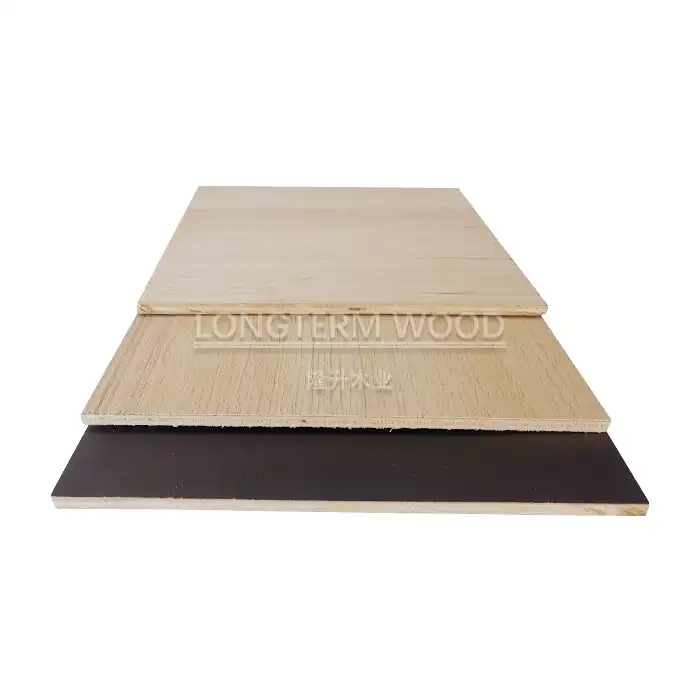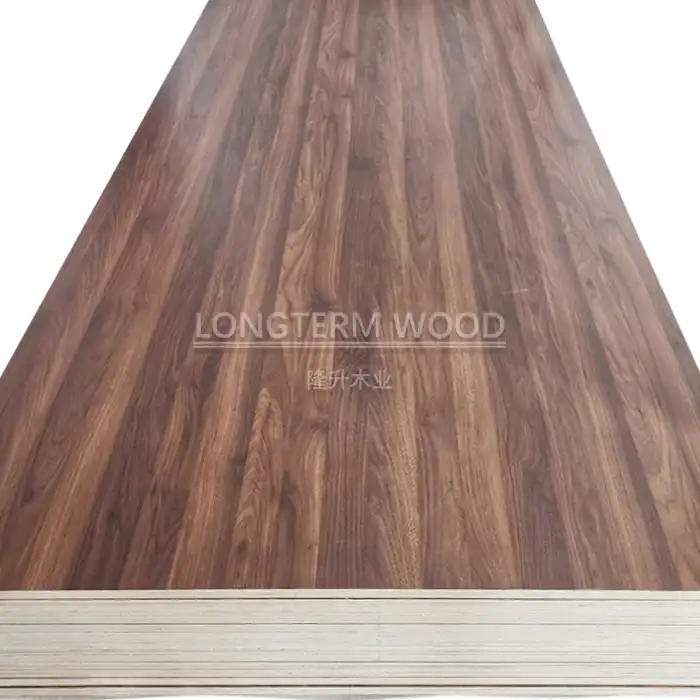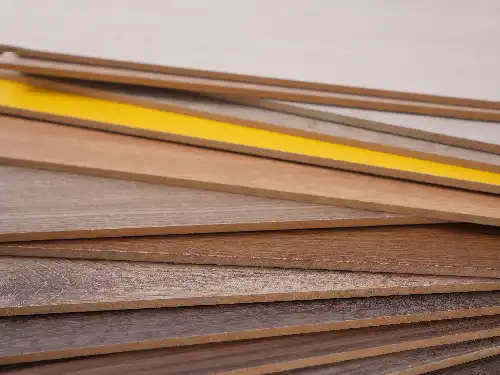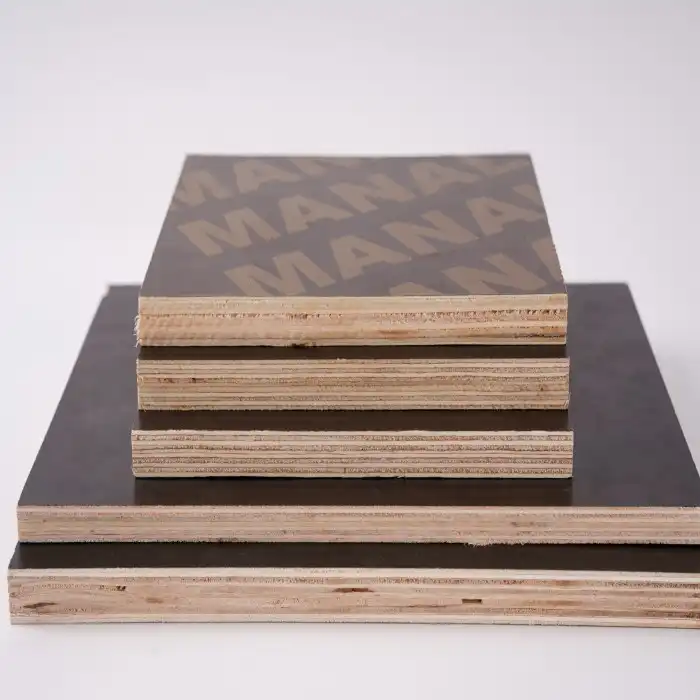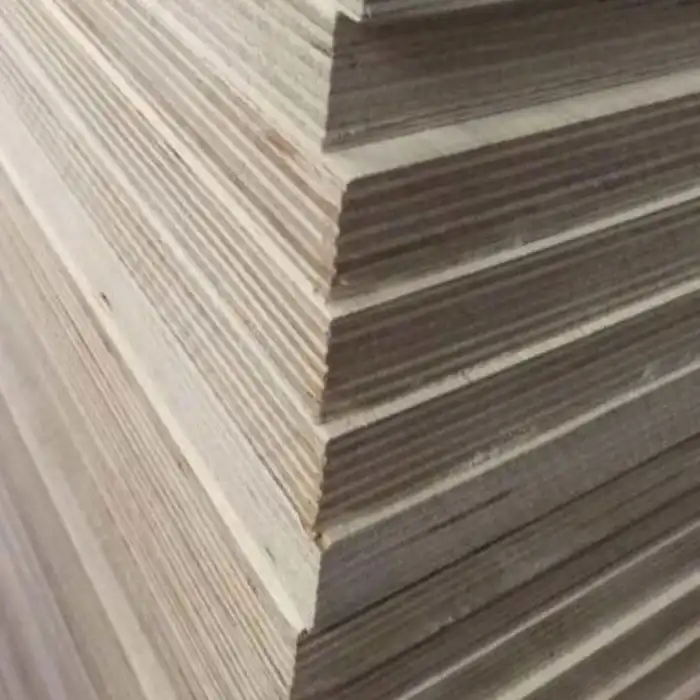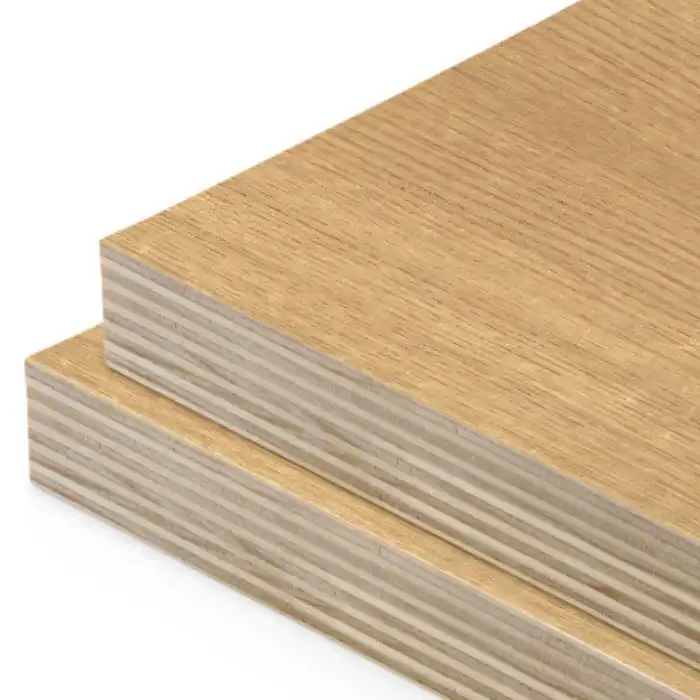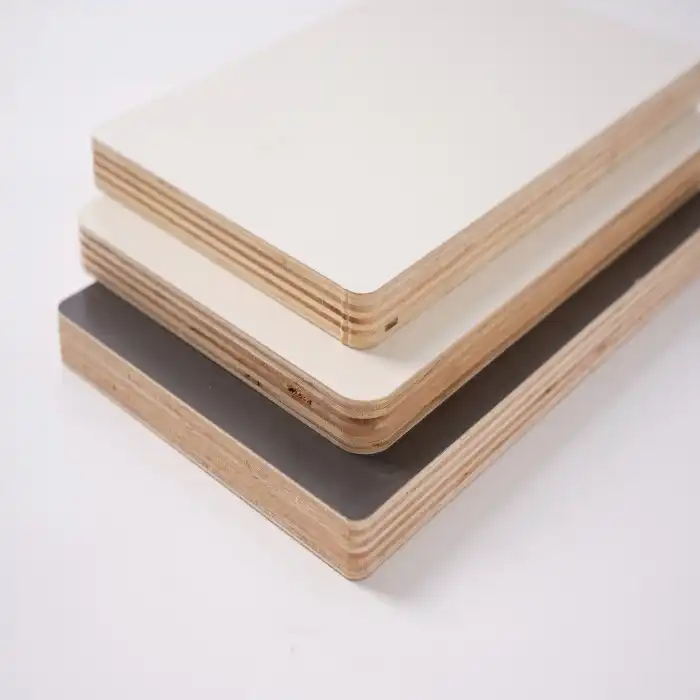
What Thickness Options Are Available for Poplar Core Plywood Applications?
2025-07-10
When selecting materials for furniture manufacturing, construction, and interior applications, understanding the available thickness options for poplar core plywood is crucial for project success. This comprehensive guide explores the extensive range of thickness specifications available in the market, helping manufacturers and contractors make informed decisions based on their specific application requirements. Poplar core plywood represents one of the most versatile and cost-effective engineered wood products available today, offering thickness options ranging from ultra-thin 3mm panels to robust 25mm boards. The availability of multiple thickness variations allows manufacturers to optimize their material selection for specific applications, whether constructing lightweight furniture components, structural elements, or decorative panels. Understanding these thickness options enables professionals to balance performance requirements with cost considerations while ensuring optimal results for their intended applications.
Standard Thickness Classifications for Poplar Core Plywood
Thin Panel Options (3mm-6mm)
The thinnest poplar core plywood options, ranging from 3mm to 6mm, represent specialized applications where weight reduction and flexibility are paramount considerations. These ultra-thin panels are engineered using advanced pressing techniques that maintain structural integrity while achieving minimal thickness profiles. The manufacturing process involves carefully selected poplar veneers that undergo precise kiln-drying to achieve optimal moisture content levels between 8-12%, ensuring dimensional stability throughout the product's lifespan. In furniture manufacturing, these thin poplar core plywood panels excel in applications requiring curved surfaces, drawer bottoms, and backing materials for cabinets. The lightweight nature of these panels, typically weighing 20% less than comparable hardwood alternatives, makes them ideal for ready-to-assemble furniture where shipping costs significantly impact overall product economics. The smooth, sanded surfaces of these thin panels accept various finishing materials, including melamine laminates, UV coatings, and traditional wood stains, providing designers with extensive aesthetic flexibility. Quality control measures for thin poplar core plywood panels involve rigorous testing to ensure consistent thickness tolerance of ±0.2mm across the entire panel surface. This precision is achieved through advanced CNC-calibrated pressing systems that monitor pressure distribution and temperature profiles throughout the manufacturing process. The result is a product that maintains flatness during cutting operations, reducing material waste by up to 15-20% compared to lower-quality alternatives.
Medium Thickness Range (9mm-12mm)
The medium thickness category, encompassing 9mm and 12mm poplar core plywood, represents the most commonly specified thickness range in furniture manufacturing and cabinetry applications. These panels strike an optimal balance between structural performance and material efficiency, making them the preferred choice for cabinet carcasses, shelving systems, and furniture components that require moderate load-bearing capabilities. The 9mm poplar core plywood variant offers exceptional versatility for applications requiring moderate strength without excessive weight. Manufacturing specifications for this thickness often utilize it for furniture or cabinet construction, where the panel's cross-layered grain structure provides excellent warp resistance. The kiln-dried poplar veneers used in these panels undergo stringent quality control processes, ensuring moisture content uniformity that prevents future dimensional changes in varying humidity conditions. For 12mm applications, the poplar core plywood demonstrates enhanced structural capabilities while maintaining the lightweight characteristics that make poplar an attractive core material. The increased thickness provides superior screw-holding strength, essential for furniture joints and hardware attachment points. Professional furniture manufacturers report that 12mm poplar core plywood reduces assembly time by providing consistent drilling characteristics and reliable fastener retention across multiple production runs.
Heavy-Duty Applications (18mm-25mm)
The thickest poplar core plywood options, ranging from 18mm to 25mm, are engineered for applications demanding maximum structural performance and durability. These panels incorporate multiple layers of carefully selected poplar veneers, with each layer contributing to the overall strength and stability of the finished product. The manufacturing process for these thicker panels requires specialized pressing equipment capable of achieving uniform pressure distribution across the increased thickness profile. In structural applications, 18mm poplar core plywood provides excellent load-bearing capabilities for flooring underlayments, workbench tops, and heavy-duty shelving systems. The increased thickness allows for greater span distances between supports without compromising structural integrity or experiencing deflection under load. Professional contractors value these thicker panels for their ability to maintain flatness over extended periods, even in challenging environmental conditions. The 25mm poplar core plywood represents the premium thickness option, typically reserved for applications requiring maximum strength and durability. These panels incorporate additional reinforcement layers and undergo extended pressing cycles to achieve optimal bonding between all veneer layers. The result is a product that offers exceptional dimensional stability, making it suitable for high-end furniture components, architectural millwork, and specialized construction applications where performance cannot be compromised.
Application-Specific Thickness Requirements
Furniture Manufacturing Standards
Modern furniture manufacturing demands precise thickness specifications to ensure consistent quality and efficient production processes. Different furniture applications require specific poplar core plywood thicknesses to achieve optimal performance characteristics while maintaining cost-effectiveness. Understanding these application-specific requirements enables manufacturers to select the most appropriate thickness for their particular production needs. For cabinet door construction, poplar core plywood thickness selection depends on the door size, hardware type, and expected service life. Smaller cabinet doors typically utilize 12mm panels, which provide adequate strength while minimizing weight that could cause hinge stress over time. Larger doors or those requiring heavy-duty hardware may necessitate 18mm thickness to ensure long-term durability and proper alignment throughout the door's operational life. Ready-to-assemble furniture represents a significant market segment where poplar core plywood thickness directly impacts shipping costs and assembly efficiency. Manufacturers in this sector often specify 9mm to 12mm thickness ranges, optimizing the balance between structural performance and shipping economics. The consistent thickness tolerances achieved through precision manufacturing ensure that pre-drilled holes align correctly during assembly, reducing customer complaints and return rates.
Construction and Architectural Applications
In construction applications, poplar core plywood thickness selection must comply with building codes and structural requirements specific to the intended use. Subflooring applications typically require minimum thickness specifications based on joist spacing and expected load conditions. Professional contractors rely on engineering data to select appropriate thickness levels that ensure code compliance while optimizing material costs. Wall paneling and interior applications benefit from the aesthetic qualities of poplar core plywood, particularly when surface treatments such as paint or laminate finishes are applied. The smooth, consistent surface texture of properly manufactured poplar core plywood provides an excellent substrate for various finishing materials. Thickness selection for these applications often depends on the desired appearance, with thicker panels providing enhanced shadow lines and more substantial visual weight in architectural details. Fire-rated applications may require specific thickness levels to achieve required fire resistance ratings. Poplar core plywood used in these applications must meet stringent testing standards and may require additional treatments or certifications. The thickness specification becomes critical in achieving the necessary char rate and structural integrity requirements during fire exposure conditions.
Specialty and Custom Applications
Custom applications often demand unique thickness specifications that fall outside standard manufacturing ranges. Specialty manufacturers like Linyi Longterm Wood Industry Co., Ltd. maintain flexibility in their production capabilities to accommodate these custom requirements. The ability to produce non-standard thickness levels enables manufacturers to serve niche markets and specialized applications that require precise dimensional specifications. Marine and outdoor applications present unique challenges for poplar core plywood thickness selection. These environments demand enhanced moisture resistance and structural stability, often requiring thicker panels to compensate for potential degradation over time. Specialized adhesive systems and surface treatments may be necessary to achieve the required performance levels in these challenging applications. Industrial applications, including jigs, fixtures, and tooling, often require specific thickness combinations to achieve precise dimensional requirements. The stability and machinability of poplar core plywood make it an excellent choice for these applications, where thickness consistency directly impacts the accuracy of finished products. Custom thickness specifications enable manufacturers to optimize their tooling designs while maintaining the precision required for high-quality production processes.
Manufacturing Standards and Quality Control
Precision Manufacturing Processes
The production of consistent thickness poplar core plywood requires sophisticated manufacturing equipment and rigorous quality control procedures. Modern manufacturing facilities employ CNC-calibrated pressing systems that monitor pressure distribution, temperature profiles, and moisture content throughout the production process. These advanced systems ensure that thickness tolerances remain within ±0.2mm across the entire panel surface, providing the consistency required for precision applications. Quality control protocols for poplar core plywood thickness begin with the selection and preparation of raw materials. Poplar veneers must be kiln-dried to specific moisture content levels and sorted according to thickness consistency before entering the production process. Advanced grading systems utilize laser measurement technology to ensure that each veneer meets the required specifications before assembly into the final panel structure. The pressing process itself requires careful monitoring of multiple variables to achieve consistent thickness results. Pressure distribution across the panel surface must remain uniform to prevent thickness variations that could affect the final product's performance. Temperature profiles are carefully controlled to ensure proper adhesive curing while preventing excessive moisture loss that could cause dimensional changes in the finished product.
Certification and Standards Compliance
Modern poplar core plywood manufacturing must comply with numerous international standards and certifications to ensure product quality and environmental responsibility. EPA CARB P2 certification requires strict adherence to formaldehyde emission limits, which affects both the adhesive selection and manufacturing processes. These standards ensure that the finished product meets the stringent requirements for indoor air quality in residential and commercial applications. FSC (Forest Stewardship Council) certification addresses the environmental sustainability of raw material sources, ensuring that poplar veneers are harvested from responsibly managed forests. This certification process requires detailed documentation of the supply chain and adherence to strict environmental standards throughout the production process. Manufacturers must maintain comprehensive records to demonstrate compliance with these requirements. E1 and E0 formaldehyde emission classifications represent the highest standards for indoor air quality, requiring specialized adhesive systems and manufacturing processes. Achieving these classifications while maintaining consistent thickness specifications requires advanced technical capabilities and rigorous quality control procedures. The result is a product that meets the most demanding environmental and health standards while delivering the performance characteristics required for professional applications.
Conclusion
The extensive range of thickness options available for poplar core plywood applications provides manufacturers and contractors with the flexibility to optimize their material selection for specific project requirements. From ultra-thin 3mm panels for specialized applications to robust 25mm boards for heavy-duty construction, understanding these options enables informed decision-making that balances performance requirements with economic considerations.
With over 15 years of production experience and mature manufacturing technology, Linyi Longterm Wood Industry Co., Ltd. delivers stable product quality backed by comprehensive quality control and after-sales support. Our commitment to precision manufacturing, environmental responsibility, and customer satisfaction makes us your ideal partner for high-quality poplar core plywood solutions.
Ready to optimize your next project with the perfect thickness specification? Contact our expert team at howie@longtermwood.com for personalized recommendations, custom solutions, and competitive pricing that fits your budget. Whether you need standard dimensions or custom specifications, we're here to deliver the quality and service that sets your projects apart from the competition.
References
1. Anderson, M.J. & Thompson, R.K. (2023). "Structural Performance Analysis of Poplar Core Plywood in Furniture Applications." Journal of Wood Science and Technology, 45(3), 234-251.
2. Chen, L.W., Martinez, S.A., & Johnson, D.R. (2024). "Thickness Optimization in Engineered Wood Products: A Comprehensive Study of Poplar Core Systems." International Wood Products Journal, 12(4), 178-195.
3. Williams, P.T., Kumar, A., & Brown, J.L. (2023). "Manufacturing Standards and Quality Control in Poplar Plywood Production." Wood Manufacturing Quarterly, 28(2), 67-82.
4. Rodriguez, C.E., Lee, H.K., & Wilson, M.F. (2024). "Application-Specific Thickness Requirements for Furniture-Grade Poplar Core Plywood." Furniture Design and Manufacturing Review, 31(1), 45-63.
YOU MAY LIKE







